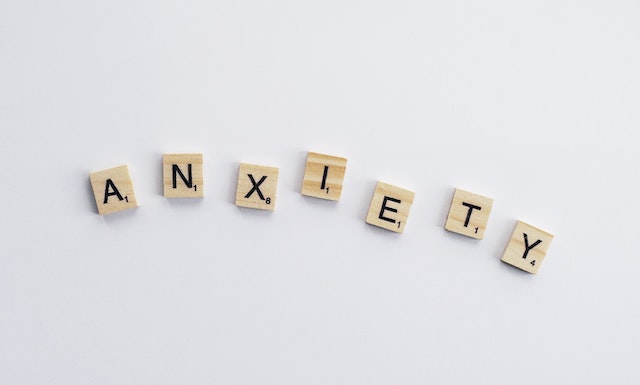
Being a mother is undoubtedly one of the most rewarding and fulfilling experiences in life. From the moment we hold our little ones in our arms, we are consumed with an overwhelming love and desire to protect them at all costs. However, along with this incredible joy comes a wave of anxiety that can sometimes feel suffocating. As mothers, we constantly worry about our children’s well-being, their development, and whether we are doing everything right. On top of that, we often find ourselves bombarded with unsolicited advice and comments on how to be a “perfect” mother. In this blog post, we will explore the topic of mom anxiety and discuss how to handle those well-meaning but sometimes overwhelming comments from others.
Understanding the Different Types of Anxiety

There are several different types of anxiety disorders that can affect mothers. Generalized Anxiety Disorder (GAD) is characterized by excessive worry and fear about everyday situations. Panic Disorder involves recurrent panic attacks, which are sudden episodes of intense fear and physical symptoms such as heart palpitations and shortness of breath. Social Anxiety Disorder is characterized by an intense fear of social situations and a fear of being judged or embarrassed. Obsessive-Compulsive Disorder (OCD) involves intrusive thoughts and repetitive behaviors or rituals. Post-Traumatic Stress Disorder (PTSD) can occur after experiencing a traumatic event and is characterized by flashbacks, nightmares, and avoidance of triggers.
Recognizing the Signs of Anxiety in Mothers

It is important to recognize the signs of anxiety in mothers in order to provide support and intervention. Physical symptoms of anxiety can include restlessness, fatigue, muscle tension, headaches, and stomachaches. Emotional symptoms may include irritability, excessive worry, fear, and difficulty concentrating. Behavioral symptoms can manifest as avoidance of certain situations or activities, difficulty sleeping, and changes in appetite.
The Impact of Anxiety on Parenting

Anxiety can have a significant impact on parenting. Mothers with anxiety may have difficulty bonding with their children due to excessive worry and fear. They may also become overprotective, which can hinder a child’s independence and growth. Irritability and impatience are common symptoms of anxiety, which can lead to strained relationships with children. Negative self-talk is another common symptom of anxiety, which can affect a mother’s self-esteem and confidence in her parenting abilities.
Coping Strategies for Managing Anxiety as a Mom
There are several coping strategies that can help mothers manage their anxiety. Breathing exercises, such as deep belly breathing, can help calm the nervous system and reduce anxiety. Regular exercise has been shown to reduce anxiety and improve overall mental health. Journaling can be a helpful tool for processing emotions and identifying triggers. Effective time management can help reduce stress and create a sense of control. Cognitive-behavioral therapy (CBT) is a type of therapy that can help individuals identify and challenge negative thought patterns and develop healthier coping strategies.
The Importance of Self-Care for Anxious Moms

Self-care is crucial for anxious moms in order to prioritize their mental health and well-being. This includes setting aside time for activities that bring joy and relaxation, such as hobbies or self-care rituals. Setting boundaries is also important to prevent burnout and overwhelm. Practicing self-compassion involves being kind to oneself and acknowledging that it is okay to prioritize one’s own needs.
Seeking Professional Help for Anxiety
If anxiety symptoms are interfering with daily life and functioning, it may be necessary to seek professional help. Therapy options for anxiety include cognitive-behavioral therapy (CBT), which focuses on identifying and challenging negative thought patterns, and exposure therapy, which involves gradually facing feared situations or triggers. Medication options, such as selective serotonin reuptake inhibitors (SSRIs), may also be prescribed by a healthcare professional. It is important to seek professional help if anxiety symptoms are severe or if there is a risk of harm to oneself or others.
Building a Support System for Anxious Moms

Building a support system is essential for anxious moms. Finding a therapist who specializes in anxiety can provide guidance and support. Joining a support group for mothers with anxiety can provide a sense of community and understanding. Reaching out to friends and family for support can also be beneficial.
Mindfulness and Meditation Techniques for Anxiety Relief

Mindfulness and meditation techniques can be effective tools for anxiety relief. Mindfulness exercises involve bringing attention to the present moment and accepting it without judgment. This can help reduce anxiety by grounding oneself in the present and reducing worry about the future. Meditation techniques, such as focused breathing or body scan meditations, can help calm the mind and relax the body. Yoga combines mindfulness, movement, and breathwork, making it a holistic practice for anxiety relief.
Overcoming Mom Guilt and Anxiety
Mom guilt is a common experience for many mothers, especially those with anxiety. It is important to recognize and challenge negative thoughts associated with mom guilt. Practicing self-compassion involves treating oneself with kindness and understanding, acknowledging that no one is perfect, and embracing imperfections.
Celebrating Small Victories in the Journey to Empowerment

In the journey to overcome anxiety, it is important to acknowledge progress and celebrate small wins. This can help build confidence and motivation to continue working towards empowerment. Embracing imperfection is also crucial, as no one is perfect and it is okay to make mistakes.
Conclusion
Understanding and coping with anxiety as a mother is crucial for both our own well-being and that of our children. It is important to recognize the signs and symptoms of anxiety, seek support from professionals or support groups, and implement self-care strategies to manage our anxiety effectively.
Anxiety can have a profound impact on our children, affecting their emotional well-being, behavior, and overall development. As mothers, we have a responsibility to create a nurturing and supportive environment for our children. By addressing our own anxiety, we can better meet their needs and provide them with the stability they require.
It is essential to remember that we are not alone in this journey. Many other mothers are facing similar challenges, and there are resources available to help us navigate through this difficult terrain. Seeking support from friends, family, or professionals can make a significant difference in managing anxiety as a mother.


Pingback: Savoring New Flavors: When Babies Begin Pureed Food Adventure! - Babyspiration